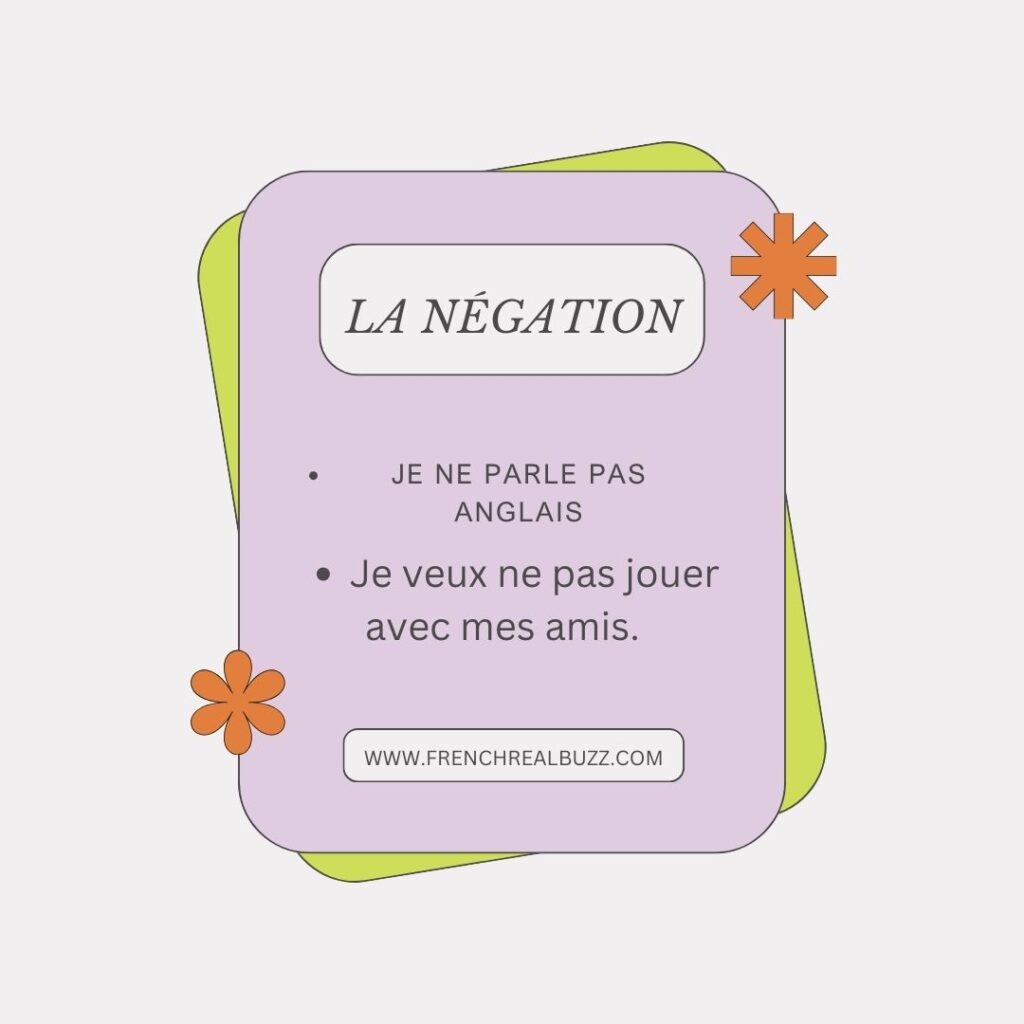As the topic title indicates negative means something that is not true, does not exist, or simply something that is not done. To convey something negative in French, one must use two words, ne and pas, as it translates as “not”.

- For example, Je ne joue pas. (I do not play)
- Tu ne mange pas. (You do not eat)
- Nous n’étudions pas. (We don’t study)
- Elles ne vont pas. (They don’t go)
- Je ne suis pas pauvre. (I am not poor)
Here are the key points that need to be remembered about “La Négation”.

- The construction of ne… pas is, |ne+verb+pas|, ne is placed before the main verb (conjugated) and pas is placed after the main verb.
- If the main verb is starting with a vowel (a,e,i,o,u,y,h) then ne becomes n’.
- A conjugated verb is the priority of the structure ne.. pas but if it still has to be placed before the infinitive verb then it is used together therefore the meaning differs. For ex. Je veux ne pas travailler. (I want not to work).
- If an Indefinite Article is used it changes to “de” and before vowel (d’) in negation which means “(not) any”. For ex. J’ai des cerises<<< je n’ai pas de cerises. (I do have some cherries<< I do not have any cherries.)
- When Être verb is used there is no change in articles. For example, C‘est une chemise<< Ce n’est pas une chemise .
- The Definite articles does not change in négation. For eg, Elle a le stylo<< Elle n’a pas le stylo.
- When number is used in the sentence it changes to “de” in négation. For ex. J’ai 3 enfants— Je n’ai pas d’enfants.
Extended French Negative Adverbs
Because of the two-part negative adverb and its somewhat tricky placement, crafting negative sentences in French differs slightly from doing so in English. Negative adverbs typically start as ne…pas. Nevertheless, once you grasp ne… pas, you may turn almost any sentence negative because numerous negative adverbs are built similarly. We shall study this in the upcoming blog.
